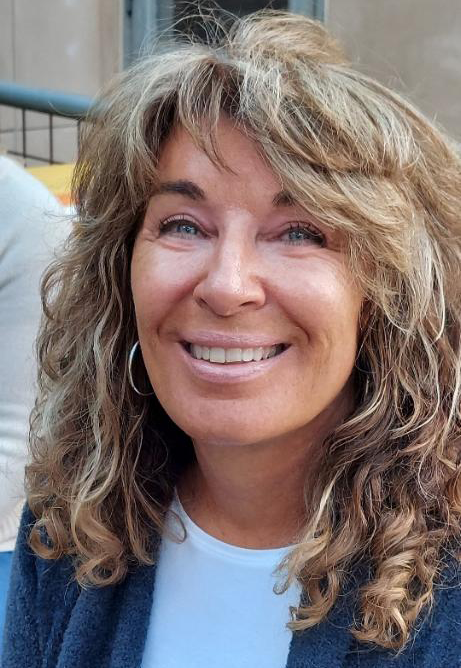
How to Stop Worrying about Money
Money and security have been one of the biggest fears in my life. Worrying about money has always come easy for me.
It’s a natural gift, you could say.
But in the past few years this fear has lost its grip on me.
In this article, by my friend Henri, are a few simple techniques that work wonders.
https://www.wakeupcloud.com/how-to-stop-worrying-about-money/#more-8721
I used to worry about money constantly.
I was gripped by the fear of poverty, and not having enough money.
But that is quickly becoming a thing of the past. My mindset is transforming from scarcity to abundance.
In this article, I’ll share what I’ve discovered, and my journey to overcoming my fear of not having enough money.
Before we begin, remember: This isn’t about how the digits in your bank account line up.
This is about how you relate to money.
What is Worry Anyway?
A worry is a thought that we believe. When we believe a thought, we think we have to do something about it.
If I have a thought that says I don’t have enough money, and I believe it, I will act as if it’s true.
We see life through our thoughts. We feel the thoughts we focus on. That is why a rich man can feel poor, while a poor man can feel rich.
So we’re not dealing with an entity that forces you to feel like you don’t have enough.
We’re dealing with thoughts and beliefs that tell us that we have to worry, otherwise we’ll end up homeless or worse.
Why Do We Worry About Money?
The reason we worry is because we believe it’s beneficial.
Believe is the key word. Worrying feels like something we have to do. Our whole being tells us that if we don’t worry, we won’t survive.
The key is seeing through this illusion. This is how beliefs work; they make it seem like you have no choice.
If you’ve worried for a long time, then that thought pattern has become a habit. It has become familiar to feel anxious about money.
It can be transformed, but you have to make the choice to do so. So let me ask you: Are you ready to transform your relationship with money?
How to Stop Worrying About Money – Video
It may not feel like you have a choice, because the worrying happens so automatically, but you have a choice.
Up until this moment, you’ve kept choosing worry because you thought you had to.
In the below video I share my take on how to stop worrying about money and poverty. After you’re done watching the video, read the rest of the article to dive deeper.
Step #1: Discover How Your Mind Works
As I said above: There are the rich who feel poor, and there are the poor that feel rich.
What’s the difference?
Their thinking, their mindset. They have different habits when it comes to their thinking patterns.
A large chunk of your experience of life is dependent on the thoughts you focus on.
If I have a thought about not having enough money, and I focus on it, I get to feel like I don’t have enough.
However, just because I feel like I don’t have enough doesn’t make it so.
Now, I have a choice. Once that thought comes in, I can give in and entertain it, or I can nip it in the bud. I can be aware of it, but not get pulled into the drama. I can watch it, and let it be.
That gives me a whole different experience. In time, as I fuel thoughts of worry less, they don’t come knocking as often.
So this first step is about noticing how you create your experience of life. Notice that you get to experience what you think, but it doesn’t necessarily mean that what you think is true.
“But Henri, I have bills to pay,” you might say.
I’m not denying that you have bills. I’m pointing you to how you relate to those bills. You have a choice whether you want to worry yourself to death, or whether you take a more relaxed approach.
Because you see, when you relax, you free up energy and creativity. That’s when you can do something about your bills, if there is something to be done.
Below is a video where I dive deeper into this.
Step #2: Explore Thought Patterns
Next, grab a pen and a piece of paper. Write down what you’re worried about.
When you become aware of your own thought patterns, you start to catch them in the act.
A powerful way to increase awareness of how you worry is through writing down your thoughts. The more you do this, the more you begin to spot patterns.
In time, it becomes like watching a movie for the 100th time. It becomes old. The same story, over and over again.
The exercise goes something like this: Each day, sit down for 10-15 minutes and write down every worrisome thought you have. Explore what’s going on, and put it on paper.
This is similar to Morning Pages from Julia Cameron.
If you want questions, here are a few to get you started:
- What am I worried about?
- What is the cause?
- What is the solution? (if one exists)
- What can I do about this, right now?
- Why do I have to worry or think about this?
- What is the worst that can happen?
- What can I do if that worse case happened?
- If I were on my deathbed, what advice would that future me share now?
Pay attention to how your mind tries to pull you into the same story you’ve fallen into in the past.
Notice how you feel fear because you pay attention to a story, a thought, in the theater of your inner space.
Step #3: Dance With Fear
This next step is about emotional acceptance.
One of the reasons why thought patterns persist is because they have an emotional charge. That emotional charge is there because you have a cluster of thoughts that support each other.
They’ve built a small community of scarcity to convince you that you need to feel bad, afraid, and anxious.
Now, if you want to learn how to stop worrying about money, you have to learn to feel your emotions fully.
Feeling your emotions fully helps you look beyond labels of good and bad. When you let emotions dance in your body, they eventually run out of steam.
How is this done?
Personally, I start by noticing what I’m feeling and where it is. I then open myself to it. I accept it. I let it expand. I welcome it in.
If you’re anything like me, you may have a natural resistance to emotions. You may try to stop yourself from feeling them. If that’s the case, all you have to do is to stop resisting, and feel the emotion.
It may feel scary at first, but you’ll soon find it exhilarating, because you realize that there is nothing to fear.
If you feel especially daring, go to the worst case scenario. For example, if you’re afraid of being homeless, imagine that, and try to amplify it. Then notice where the emotion is, and feel it fully.
As resistance and thoughts pop up, include them, and keep feeling everything.
If you want more detail, below is a video on how I do this.
Step #4: Live in the Present Moment
So you’ve learned how your mind works, to identify your thought patterns, and to feel your emotions fully.
Now it’s time to live in the present moment.
What does it mean to live in the now? To me it means being mindful, which means being aware of your body, your mind, your surroundings, and the space between all things.
I’ve been practicing living in the now since around 2006, when I bumped into the Power of Now by Eckhart Tolle in a small bookstore in Bangkok, Thailand.
So it’s taken time for me to become anchored in the present moment.
How does living in the present help you transform your scarcity mindset?
When you’re mindful, you notice when worry pops up. You notice when your mind starts telling you the same old story about why you must worry.
As that happens, you can be present with it.
Today, I’m able to catch myself before I spiral down into the depths of worry.
I know that my mind doesn’t know everything. I know that I don’t have to be afraid of my thoughts.
This doesn’t mean I don’t have anxious days, because I do. It just means that I’m less likely to panic over them. I know they will pass.
I know they’re a part of the human experience.
Below is a video of mine where I go deeper into how to live in the present moment.
The Wrap Up
You experience life through the thoughts you focus on.
You can explore your thought patterns, and eventually see through how your mind tries to pull you into acting out of fear.
You can feel your fear fully, and it eventually dissipates.
And you can live in the present moment, and catch yourself before you spiral down into the world of worry and anxiety.
Don’t feel like you have to apply everything from this article. I suggest you take the step that resonates with you the most, and play with it.
As you take action, life brings you what you need.
This is the beginning of a new way of relating to money. Are you ready for it?
Please share if you find this helpful




